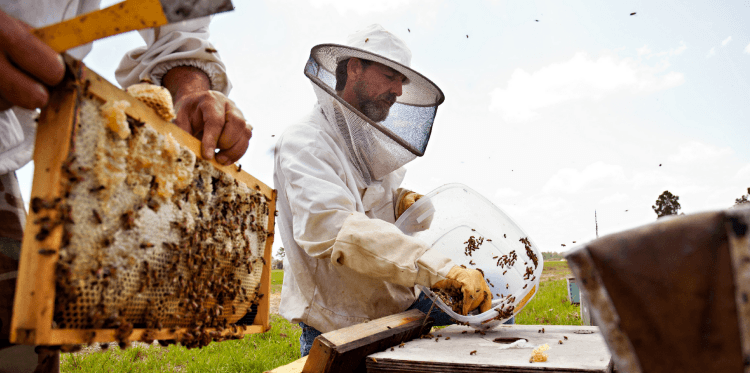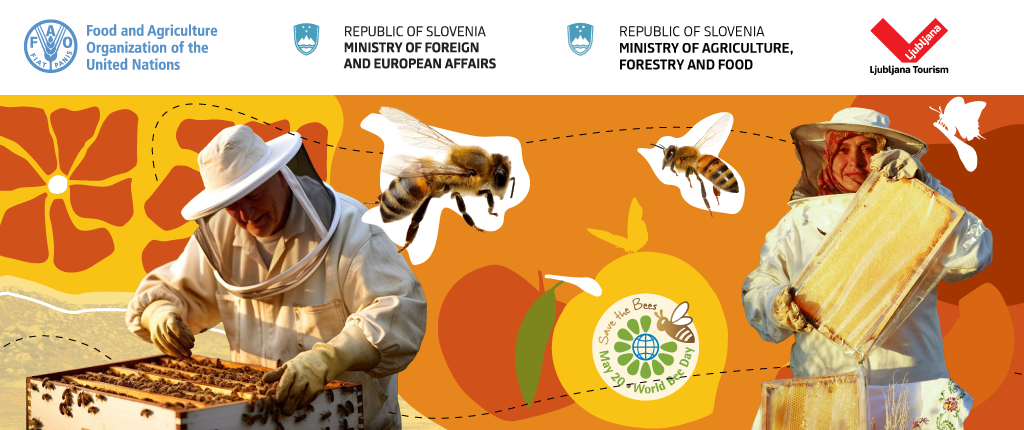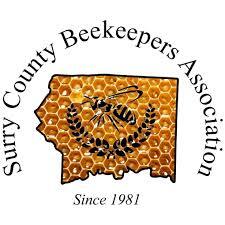By Nick Weber
BECAUSE ALL THE POLLINATOR WEEK BUZZ’S DIDN’T FIT INTO POLLINATOR WEEK
For Michael Hill, who grows blueberries at Southern Hill Farms in Clermont, Fla., bees are essential to the success of the farm.
“Without bees, we wouldn’t have much of a crop,” Hill said. “We would have a 50 percent decrease in production without bringing in the bees from commercial beekeepers.”
Allie Corcoran, owner of Backyard Orchards in Eufaula, Ala., is just as reliant on bees for providing produce for local consumers at her Pick-Your-Own farm.
“The bees help pollinate 100 percent of my crops,” Corcoran said. Corcoran grows strawberries, blueberries, peaches and vegetables for both Pick-Your-Own and for local grocers. “Without them, many of my berry crops wouldn’t produce a high yield. I always scout for bees, and it brings me joy to see them buzzing in the blooms on the crops!”
As the need for farmers to bring better crops consistently to harvest to support a growing population, so has the need to have commercial beekeepers assist with pollination of these crops, said Jerry Hayes, honey bee health expert at Monsanto.
Commercial beekeeping helps farmers increase their crop production.
“There was a time, maybe 30 to 40 years ago, when some farms may have had pollinators in the wild and unmanaged honey bees — those living in hollow trees or old barns — account for most of a crop’s pollination needs,” said Hayes. “But then a pest named the Varroa mite came along, which affected honeybee health and wiped out many unmanaged honey bee colonies. This all but eliminated free pollination. Now, given our current food system and needs, farmers — and as a result, consumers — must rely on commercial pollination.”
Considering that the history of agriculture is thousands of years old, commercial beekeeping and its importance to agriculture is a relatively new development. Over the past 100 years, and particularly in the past 40 years, the rise of commercial beekeeping as a traveling endeavor to assist with the pollination of more than 100 crops has coincided with the rise of pollinated-dependent, commercial agriculture. No matter your position on the topic of commercial agricultural production, commercial beekeepers are necessary to support agriculture and provide nutritious food for the masses.
Two crops that capture the importance of the symbiotic relationship of commercial beekeepers and commercial farmers are almonds and blueberry. Both crops rely heavily on pollinators to assist with fruit production, and their increase in acreage numbers is remarkable. According to the U.S. Department of Agriculture:
- Since 1996, almond acres have doubled, from 400,000 to 800,000 in 2014
- Since 2007, blueberry acres have jumped from 53,000 to 82,600 in 2014
The significant increase in acres can be attributable to the halo of health surrounding the two crops. Almonds are high in monounsaturated fat (the good fat) and protein and have 12 vitamins and minerals. Blueberries are a good source of Vitamin C, manganese and dietary fiber and are well-known for having high levels of antioxidants. Blueberry consumption has skyrocketed: Per capita blueberry consumption was about 20.2 oz for Americans in 2005. In 2015, it’s projected to be 50 oz.
“One can make a direct connection between the growth in acreage of pollinator-dependent crops, such as blueberries and almonds, and the rise of commercial beekeeping,” Hayes said. “The commercial beekeepers have been around for quite some time, first as honey collectors. Then, as they saw a need for agriculture to utilize honey bee colonies for pollination, the beekeepers shifted business models to support pollination events around the United States.”
“I rely on commercial beekeepers to provide the bees to help pollinate my berries,” Corcoran said. “I am currently looking to expand the bee colonies in the farm. We currently have one. I’d like about five scattered throughout our blueberry patch, peach orchard and strawberry patch. I know farmers who grow large quantities of cucumbers and melons just south of me rely heavily on commercial beekeepers.”
It’s this mutually beneficial relationship — fruit and vegetable farmers need commercial pollination to produce crops and the commercial beekeepers travel the country as businesspersons. This relationship is responsible for nearly one-third of the food we eat.
“Agriculture has evolved like everything else,” said Hill, whose blueberry farm supplies produce to grocers around the world, but also has a Pick-Your-Own blueberry operation for local consumers. “Yields have increased, and we understand more and more about our crops and bees. Wild pollinators can’t pollinate as much, because we are producing so much more now. A good commercial beekeeper is as important as a good fertilizer program. We need commercial beekeepers to help us.”









